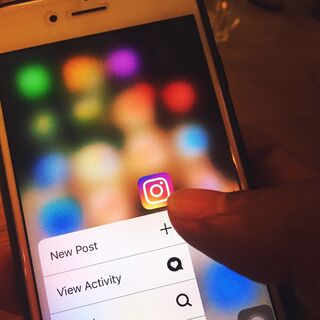Media
Social Media and the Black Cat Fallacy
Facebook's internal research shows the power of self-fulfilling prophecies.
Posted October 15, 2021 Reviewed by Davia Sills
Key points
- There is no clear scientific evidence that social media apps are damaging to people's mental health.
- False beliefs can wind up creating self-fulfilling prophecies.
- If people believe that social media is bad for their health, it may end up having that effect.

There’s been a lot of news and discussion about the psychology of social media (Instagram in particular) after the Congressional testimony from a former Facebook employee as well as the release of their internal research documents. It’s very important that we think critically about social psychology and mental health, so let’s dive right into it.
The Black Cat Fallacy
Here is a question that I pose to students in my Psychology of Happiness course: “Imagine someone named Steve. Steve has been told by those around him throughout his life that black cats are very bad luck, causing all kinds of terrible things to happen. Then, one day, Steve is walking on the street and sees a small black cat innocently strolling past him. Steve is instantly startled, and in a panic, he trips, falls, and fractures a bone in his wrist trying to break his fall. Here’s my question: Did the cat cause Steve to hurt his wrist, or did Steve’s belief about the cat cause him to hurt his wrist?”
Typically, my students give mixed answers, with some arguing that it’s Steve’s own fault for having a false belief (while noting that black cats are adorable and harmless), and others maintain that Steve’s belief was risk-free just so long as he never encountered any cats—thus, the solution would be to avoid cats if he’s afraid of them. But I’m more interested in nudging students to understand the logical fallacy inherent to this prompt.
In our world, there is no evidence that any type of cat gives people bad luck. If anything, research shows that cats promote positive mental health! But the attitudes that people have can often lead to negative behavioral, emotional, and social consequences. Psychologists refer to this as a self-fulfilling prophecy, much like the placebo effect, that stems from the power of suggestion, which can influence pain or happiness.
This phenomenon is very well studied. Psychologists have argued that humans possess essentialist thinking. In the words of Paul Bloom, “We don't just respond to things as we see them, or feel them, or hear them. Rather, our response is conditioned on our beliefs about what they really are, what they came from, what they're made of, what their hidden nature is.”
In social relationships, people who are very apprehensive about rejection are more likely to experience rejection compared to people who feel more secure. If you expect others to reject you, then you may behave in ways that elicit rejection from others.
This idea is especially relevant to the overblown and hyperbolic concerns about the psychological effects of social media, particularly for kids and teenagers. Recently leaked information from a “whistleblower” ostensibly shows that apps like Instagram cause a lot of damage to mental health in American teen girls. Some have even gone so far as to draw comparisons between social media and tobacco. But is that really the right conclusion to draw?
How false beliefs affect the different ways people feel about social media
Thankfully, scientists are expressing healthy skepticism about the leaked research. Candice Odgers (a developmental psychologist) stated that we can’t rely on those findings because teenage participants have been heavily primed to believe that social media is bad for them. In other words, the research didn’t actually assess these teenagers’ mental health—it merely assessed teenagers’ beliefs about their mental health. The fact that Facebook may have kept this research hidden from the public is beside the point. To many researchers in the field of mental health, Facebook’s internal research wasn’t very good, so we can’t draw any firm conclusions based on it. That should have been the news headline: “Facebook Isn’t Very Good at Studying its Effect on Teens’ Mental Health.”
Putting this aside for a moment, it seems every month I read about another published scientific study that casts doubt on the idea that social media is psychologically damaging. Consider this study from a team led by Lucía Magis-Weinberg at UC Berkeley. Their aim was to understand if and how mental health got worse for teenagers during the 2020 pandemic lockdowns when internet-based communication was the only option for millions of folks around the world. If social media apps are truly detrimental, wouldn’t we have seen a massive spike in depression, loneliness, and suicide in teens? Isn’t that what tech fearmongers have been saying all this time?
Well, the study revealed the exact opposite findings: “The results show that using social media to actively connect with friends and family and find support… can have a positive impact on well-being,” Maris-Weinberg said in an interview. “There has been this negative discourse about screen time causing loneliness and depression. But our findings provide more nuance and show that, when used positively, online interactions are actually associated with less loneliness.”

What about pre-teens? Same story. Here’s a study on 9–10-year-olds, led by Katie Paulich at the University of Colorado. They studied nearly 12,000 kids and found that screen time was not a powerful predictor of well-being. Screen time explained less than 2 percent of the variance in kids’ mental health, and it actually had a positive association with peer friendships. The authors concluded that the “negative impact… is likely not clinically harmful at this age.”
It is beyond baffling and incredibly frustrating to me that studies like these are hardly ever reported on or discussed in the mainstream press. Why not? Wouldn’t you, as a parent, be comforted by the news that your child is not suffering from “social media addiction,” or that using social media might actually be good for their relationships? Isn’t that an interesting and relevant idea?
Some of you may have noticed the phrase “when used positively” in the Magis-Weinberg quote above. There is no doubt that some people do experience adverse outcomes on social media, but I don’t think there is evidence to support a healthy vs. unhealthy divide in terms of content or usage. One person may be disturbed while watching nature videos on Instagram showing animals brutally hunting each other, while others might find it fascinating and inspiring.
Thus, I suggest that a crucial variable to consider in this context is what kind of belief or mindset people have about it. Those who claim that social media apps cause psychological damage are failing to see the big picture. They’re committing the black cat fallacy. “Positive” social media use is in the eye of the beholder.

Similarly, some may suggest that the Instagram research is flawed due to the fact that the researchers used surveys. I think this is also a misguided viewpoint. People can reflect and report on their emotional experiences with a high degree of accuracy and consistency. We are generally aware of the things that make us happy or miserable. Surveys aren’t the problem. The problem is the power of suggestion as a major confound in this line of research.
Takeaways
When we critically examine the question of whether utilizing social media sites/applications is bad for someone’s mental health, it depends on a variety of interwoven factors (e.g., age, gender, personality type, content type). But the most influential variable in this equation may be whether the person believes that social media is bad for them. This belief, just like the belief that black cats are bad luck, may end up creating the very same negative outcomes that we’re trying to avoid.
References
Downey, G., Freitas, A. L., Michaelis, B., & Khouri, H. (1998). The self-fulfilling prophecy in close relationships: rejection sensitivity and rejection by romantic partners. Journal of Personality and Social Psychology, 75(2), 545.
Jussim, L. (1986). Self-fulfilling prophecies: A theoretical and integrative review. Psychological Review, 93(4), 429.
Magis‐Weinberg, L., Gys, C. L., Berger, E. L., Domoff, S. E., & Dahl, R. E. (2021). Positive and negative online experiences and loneliness in Peruvian adolescents during the COVID‐19 lockdown. Journal of Research on Adolescence, 31(3), 717-733.
Paulich, K. N., Ross, J. M., Lessem, J. M., & Hewitt, J. K. (2021). Screen time and early adolescent mental health, academic, and social outcomes in 9-and 10-year old children: Utilizing the Adolescent Brain Cognitive Development℠(ABCD) Study. PloS One, 16(9), e0256591.
Sroufe, L. A. (1990). An organizational perspective on the self. In D. Cicchetti & M. Beeghly (Eds.), The self in transition: Infancy to childhood. The John D. and Catherine T. MacArthur Foundation Series on Mental Health and Development (pp. 281-307). Chicago: University of Chicago Press.
Straede, C. M., & Gates, R. G. (1993). Psychological health in a population of Australian cat owners. Anthrozoös, 6(1), 30-42.




